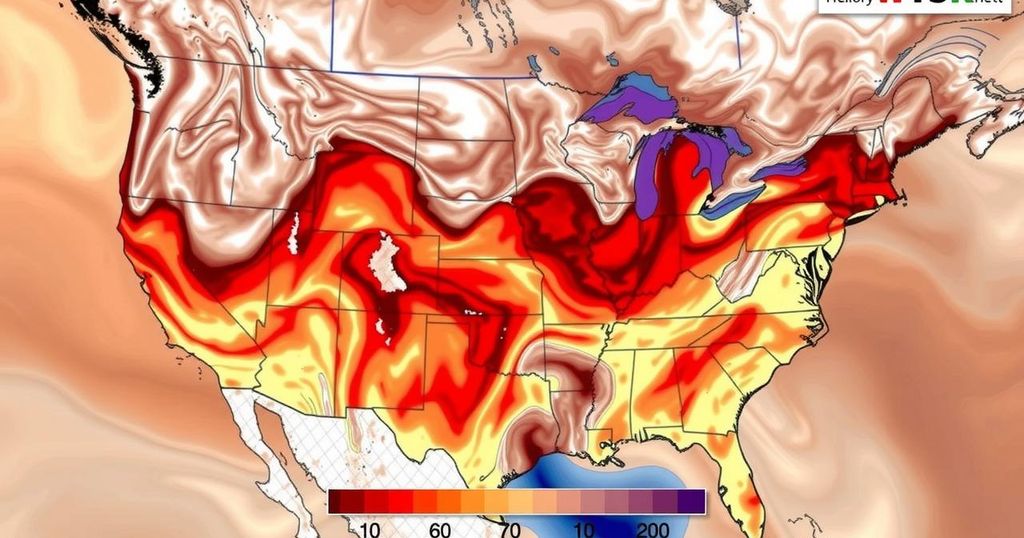Second-Warmest November Signals 2024 Likely to Be Hottest Year on Record

A recent report indicates that November 2024 was the second-warmest November on record, likely leading to 2024 being the hottest year measured. Global average temperatures are significantly above historical averages, with expert assessments highlighting serious concerns over climate change impacts on ecosystems and agriculture. An urgent call for climate action has been made, given the troubling trajectory of global warming.
Recent reports indicate that Earth has experienced its second-warmest November on record, second only to the unprecedented warmth of November 2023. This development strongly suggests that 2024 may conclude as the hottest year ever recorded. The European climate service Copernicus has attributed this trend to human-induced climate change, exacerbated by a lack of cooling from the expected La Niña phenomenon following a past El Niño event. Alarmingly, the global average temperature for November reached 14.10°C (57.38°F) — significantly higher than historical averages and markedly above the 14.98°C (59°F) for the same month in the previous year. Furthermore, experts indicate that this year is likely to be the first in which the global temperature exceeds 1.5 degrees Celsius above pre-industrial levels, posing significant risks to both ecosystems and agriculture. Samantha Burgess, Deputy Director of Copernicus, emphasized the urgent need for vigorous climate action, while climate scientist Jennifer Francis noted that the rapid pace of warming is increasingly detrimental to biodiversity and agricultural systems.
The context of this article lies within the broader discourse on climate change, particularly highlighting how global warming trends have manifested in increasing average temperatures over recent years. The phenomenon has reached critical levels, with notable contributions from fossil fuel combustion, which significantly increases greenhouse gas emissions. Previous seasons have been influenced by natural climate patterns such as El Niño and La Niña, which typically regulate temperature fluctuations. However, recent observations suggest that these patterns are failing to provide the expected moderating influences, creating a scenario wherein extreme weather events and environmental degradation may significantly escalate.
In conclusion, the report released by Copernicus underscores a troubling trajectory for global temperatures, with November marking a significant increase that foreshadows a record-setting 2024. The data reflects not only an alarming shift in climate norms but also highlights the urgent need for comprehensive climate policies. The implications of this warming extend beyond mere numbers; they encompass grave threats to ecosystems, agriculture, and overall planetary health. The call for immediate action from policymakers and the public alike has never been more critical.
Original Source: apnews.com





